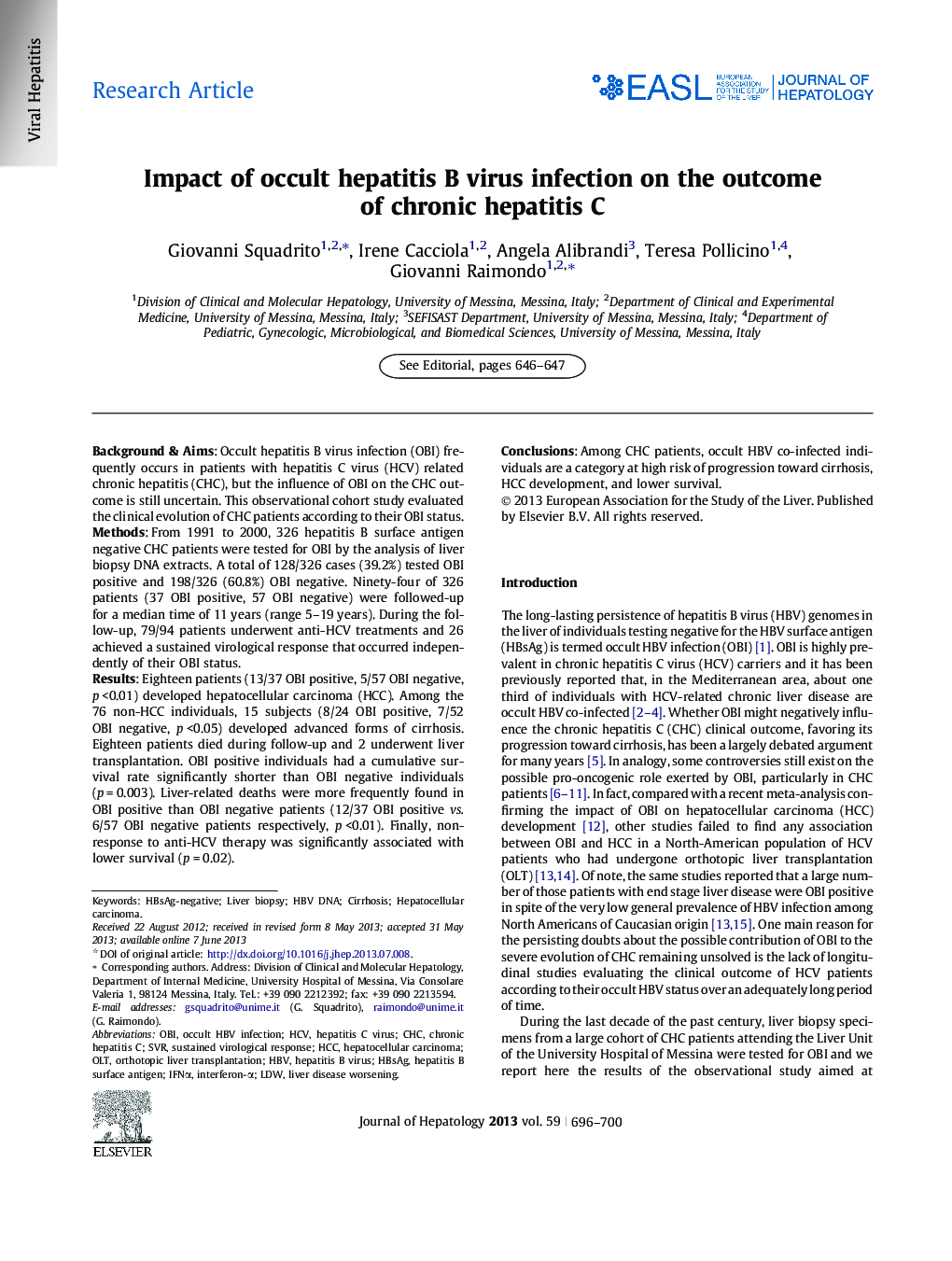| Article ID | Journal | Published Year | Pages | File Type |
|---|---|---|---|---|
| 6103770 | Journal of Hepatology | 2013 | 5 Pages |
Background & AimsOccult hepatitis B virus infection (OBI) frequently occurs in patients with hepatitis C virus (HCV) related chronic hepatitis (CHC), but the influence of OBI on the CHC outcome is still uncertain. This observational cohort study evaluated the clinical evolution of CHC patients according to their OBI status.MethodsFrom 1991 to 2000, 326 hepatitis B surface antigen negative CHC patients were tested for OBI by the analysis of liver biopsy DNA extracts. A total of 128/326 cases (39.2%) tested OBI positive and 198/326 (60.8%) OBI negative. Ninety-four of 326 patients (37 OBI positive, 57 OBI negative) were followed-up for a median time of 11 years (range 5-19 years). During the follow-up, 79/94 patients underwent anti-HCV treatments and 26 achieved a sustained virological response that occurred independently of their OBI status.ResultsEighteen patients (13/37 OBI positive, 5/57 OBI negative, p <0.01) developed hepatocellular carcinoma (HCC). Among the 76 non-HCC individuals, 15 subjects (8/24 OBI positive, 7/52 OBI negative, p <0.05) developed advanced forms of cirrhosis. Eighteen patients died during follow-up and 2 underwent liver transplantation. OBI positive individuals had a cumulative survival rate significantly shorter than OBI negative individuals (p = 0.003). Liver-related deaths were more frequently found in OBI positive than OBI negative patients (12/37 OBI positive vs. 6/57 OBI negative patients respectively, p <0.01). Finally, non-response to anti-HCV therapy was significantly associated with lower survival (p = 0.02).ConclusionsAmong CHC patients, occult HBV co-infected individuals are a category at high risk of progression toward cirrhosis, HCC development, and lower survival.
